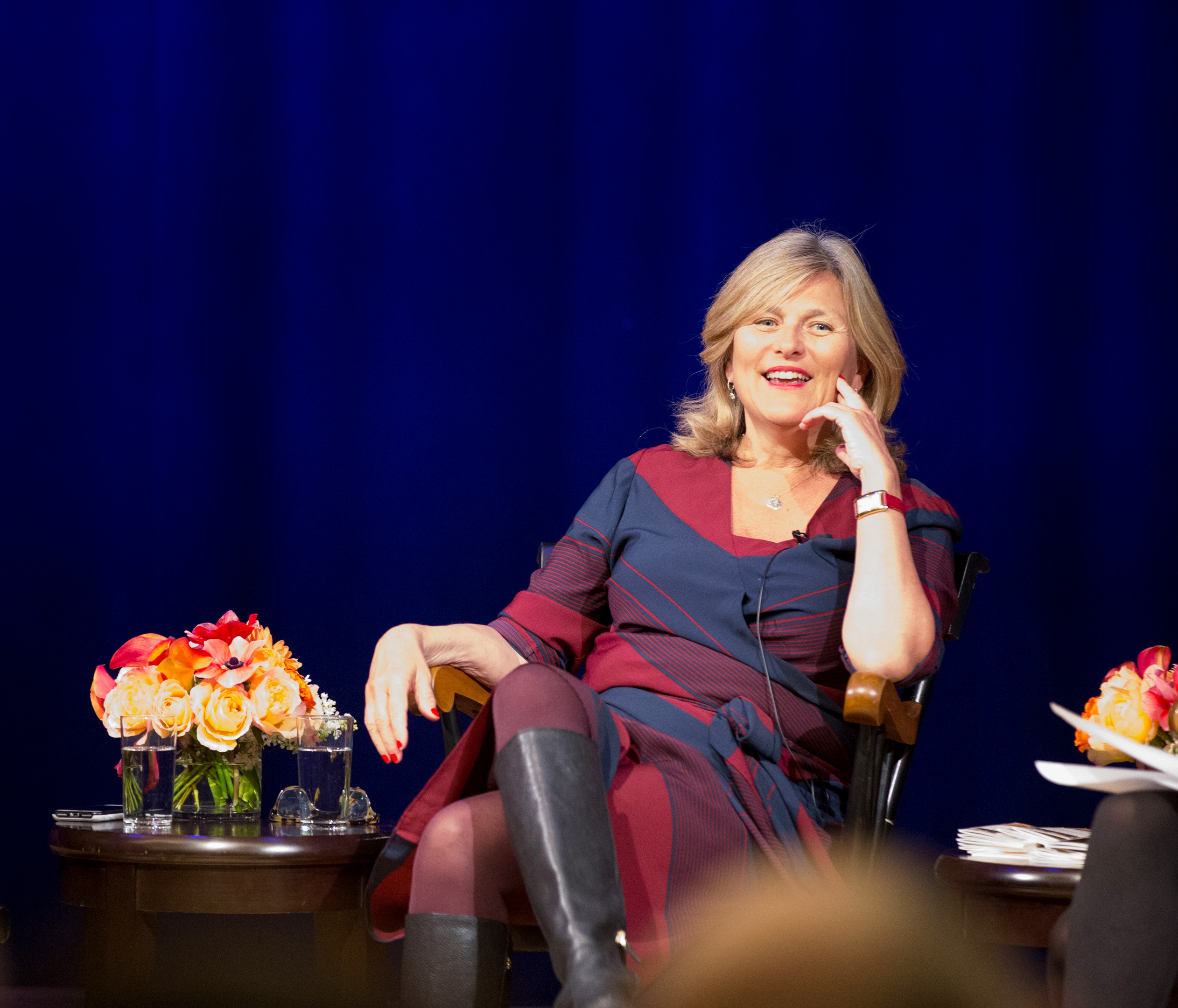McFadden addresses press freedom, spurs discussion on partisan media
March 31, 2017
On Monday, Cynthia McFadden ’78 H’12 brought humor and levity to a discussion titled “Is the Press Still Free?”—a question that she answered with a “resounding yes.”
McFadden, a senior news investigative correspondent at NBC News, first responded to questions from moderators Bowdoin Student Government President Harriet Fisher ’17 and McKeen Fellow Marina Affo ’17. During the second half of the event she answered questions from students in the audience.
The event began with a discussion of the relationship between the press and the Trump administration.
“I think when the President of the United States tweets that the press is the enemy of the American people, we’re off to a bad start,” McFadden said.
She cited vigorous leak investigations and the administration’s rhetoric as concerns, especially for members of the press who lack backing from an organization like NBC News.
“It’s very difficult to get a comment from the White House on the stories that you’re working on,” McFadden said. “The flow of information from the administration to the press has changed markedly … There’s a lot of disinformation that’s put out by the White House on a regular basis, which I think is the job of the media to try to fact-check as close to real time as possible.”
Despite these challenges, McFadden remains hopeful about the future of journalism.
“We are not a timid people, those of us who seek out journalism as a profession, so I don’t think that the press is in danger of collapsing anytime soon. We’re going to continue to do what we do. Their job is to keep the secrets and our job is to find them out,” she said.
As a journalist, McFadden positioned herself as being on the side of facts rather than any political movement or party.
“I’m in a privileged position to be able to do stories that I think are important and matter,” said McFadden. “I don’t see my job as against Trump or against the Trump administration. I see my job as on the side of telling the truth, and sometimes they’re going to like it, sometimes they’re not.”
Much of the discussion focused on how to seek out reliable sources of news and to avoid fake news.
“I think trusted news sources are a good place to start,” McFadden said. “I think that with all that’s been said against big corporations, I think there are many large media organizations that you should consider trusted … I don’t think that this huge volume often of terrible information is bad for us. I think what’s bad for us is not having enough of a critical sense of trying to sort the things out and make judgments for yourself.”
McFadden concluded the discussion by emphasizing the importance of the press in American democracy.
“There are a lot of people in the country who are very concerned about what they see as a press trying to undermine the president that they voted for,” said McFadden. “The press is far from perfect. But I think the press provides a very vital role in making sure that the democracy works.”
Many students were invigorated by McFadden’s approach to journalism.
“Overall, I really liked [the talk],” said Henry Daniels-Koch ’17. “I think she was really articulate and really funny and enjoyable to listen to. And the other big takeaway was it gave me confidence in the news system, in that she is inspiring and felt very dedicated to the mission of getting to the truth, as opposed to just appealing to a specific audience. And that was really good to hear because I think my confidence in media news outlets [had been] definitely waning these last couple years.”
Chlöe Dietrich ’16 had a similarly positive reaction.
“It was definitely very interesting to sort of hear from somebody who is so central to all of these processes, who is really rigorously involved in the creation and the presentation of news,” said Dietrich. “I think that we hear from a lot of journalists and a lot of people with opinions, but we don’t often get to hear from the so-called experts themselves. I thought that was a very unique perspective that I hadn’t heard before.”
Following the talk, students gathered in Jack McGee’s Pub and Grill to participate in a discussion entitled “Red Feed, Blue Feed: Through what lenses do we view our media?” which addressed partisanship in students’ news consumption. Moderated by Associate Professor of Government Jeffrey Selinger, the discussion was a part of the Joseph McKeen Center for the Common Good’s “What Matters” series.
During the event, Drew Van Kuiken ’17, editor-in-chief of the Bowdoin Globalist, announced the Purple Media Plunge, a month-long event challenging students to read headlines from three cable news networks once per day via email in order to diversify their media intake.


Comments
Before submitting a comment, please review our comment policy. Some key points from the policy: